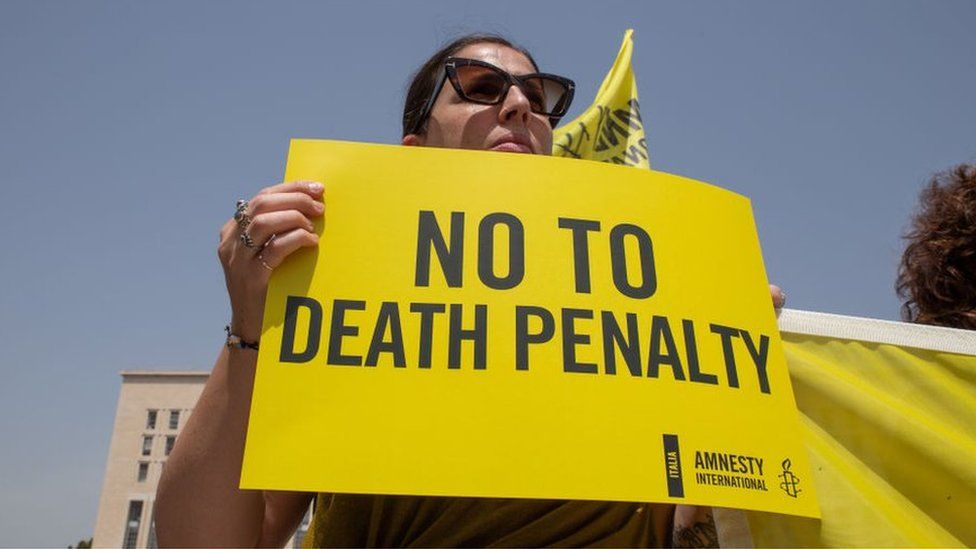-

-
-
Loading

Loading

In 2022, a convicted murderer in the US is set to make history as the first person to be executed using nitrogen gas. This method has never been tested before, and the prisoner's lawyers argue that it constitutes a "cruel and unusual" punishment. Meanwhile, in Japan, a man has been sentenced to death by hanging for an arson attack that resulted in the deaths of 36 people. Despite the increasing number of countries abolishing capital punishment, the global tally of executions has risen. Amnesty International has compiled the latest data, which includes official figures, media reports, and information provided by individuals facing the death penalty and their families. However, it is important to note that China does not disclose its use of the death penalty. Amnesty International documented 883 executions worldwide in 2022, marking a 53% increase from the previous year and the highest number since 2017. Nevertheless, this figure remains significantly lower than the peaks seen in 1988, 1989, and 2015 when over 1,500 individuals were executed annually. In 2022, at least 2,016 death sentences were handed down across 52 countries, compared to 2,052 in 2021. Many prisoners spend years or even decades on death row before their execution takes place. Twenty countries conducted executions in 2022, an increase from the 18 recorded in 2021. Amnesty International believes that China leads the world in the number of executions, potentially reaching thousands per year, although this cannot be verified. Other nations with high execution rates include Iran, Saudi Arabia, Egypt, and the United States. Amnesty International continues to highlight the persistence of 11 countries in regularly executing people each year, which include China, Egypt, Iran, Iraq, Saudi Arabia, the US, Vietnam, Yemen, and possibly North Korea. Saudi Arabia recorded its highest number of executions in 30 years in 2022. While Bahrain, Comoros, Laos, Niger, and South Korea sentenced individuals to death in 2022 after years without imposing capital punishment, the number of executions in the United States has declined since its peak in 1999. Amnesty International has reported that in 2022, there were 325 executions worldwide for drug offenses. Additionally, Singapore executed a woman, Saridewi Djaman, convicted of heroin trafficking in 2018, marking the first execution of a female in nearly two decades. Comparing to 1991, the death penalty is no longer utilized in 112 countries. In 2022, six nations either fully or partially abolished the death penalty, including Kazakhstan, Papua New Guinea, Sierra Leone, and the Central African Republic. Equatorial Guinea and Zambia restricted its usage to the most serious crimes. Recently, Malaysia's parliament voted to remove the mandatory death penalty for 11 severe crimes, such as murder and terrorism, and Ghana's parliament voted to entirely abolish the death penalty in 2023. Saudi Arabia remained the only country using beheading as an official method of execution in 2022, while other countries employed a variety of methods like hanging, lethal injection, and shooting. The state of Alabama in the US plans to execute a convicted murderer, Kenneth Smith, using nitrogen gas. This untested method has been authorized by Alabama and two other states due to difficulties in obtaining the drugs commonly used in lethal injections. The use of nitrogen gas as a means of execution has been heavily criticized as a cruel and inhumane punishment. The shortage of drugs and logistical challenges have contributed to the decline in the use of the death penalty across the United States.